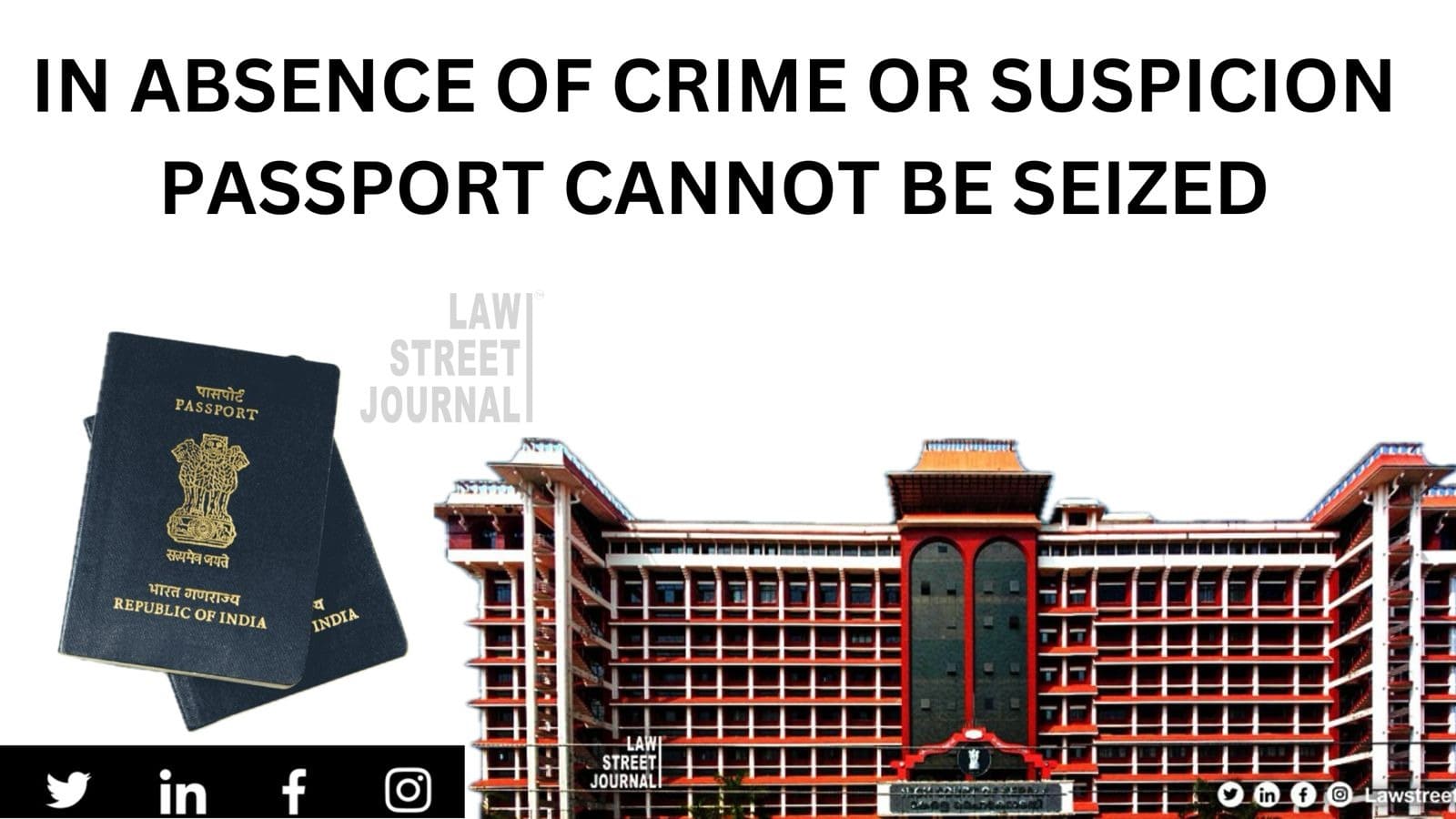KOCHI: The Kerala High Court recently granted relief to man whose passport was seized by the Authorities.
While doing so, Justice Bechu Kurian Thomas clarified that in the absence of any crime committed or suspected to have been committed, a passport cannot be seized or retained by the investigating agencies.
The passport of an individual is an important document and is issued under the provisions of the Passports Act, 1967. In the absence of any crime committed or suspected to have been committed with the said document, a passport cannot be seized or retained by the investigating agencies
Further, it was stated that the seizure of a document, if it can be treated as a property, has to be under section 102 of the Cr.P.C and the conditions stipulated therein ought to be satisfied.
A document is generally subjected to impounding under section 104 CrPC and this can only be done by the Court.
The court relied on the Supreme Court's decision in Suresh Nanda v. CBI, which held that while the police may have the authority to seize a passport under Section 102(1) of the CrPC, they do not have the authority to impound a passport, which can only be done by the Passport Authority under Section 10(3) of the Passports Act, 1967.
In this case, the petitioner's passport was seized by the Intelligence Officer of the Narcotics Control Bureau alleging commission of an offence under the Narcotic Drugs and Psychotropic Substances Act, 1985. He was arrested after he received a parcel containing 3.5 kilograms of hashish.
The petitioner's application for interim custody of his passport filed was dismissed. Aggrieved, he moved the High Court.
The counsel for the petitioner contended that the materials seized cannot be retained by the respondents since they are unconnected with the crime. It was also contended that the seizure of the passport was done without authority of law as it was not at all involved in the crime. The articles seized ought to have been released to the petitioner, argued the advocate.
The counsel for the Narcotics Control Bureau, which is investigating the case, opposed the petition. It was argued that the mobile phone of the accused had to be sent for forensic analysis and that releasing his passport and identity card would only assist the petitioner in fleeing from the clutches of law.
Whether the passport, the mobile phone and the identity card of the petitioner can be retained by the second respondent during the course of the investigation This was main question that the court looked into.
The High Court noted that the order granting the petitioner bail did not have any condition requiring him to deposit his passport with the court or the investigating officer.
"The restriction that petitioner shall not travel outside Kerala without permission from the Court cannot be a reason to retain his passport," the Court added.
The Court stated that the forensic study of the mobile phone should have been completed by now, given that it was confiscated in April 2022 while adding that the petitioners identity card also would be useless in the inquiry.
While allowing the plea, the court ordered the investigating agency told to return the petitioner's passport, mobile phone, and identity card.








![Kerala HC Quashes 498A Dowry Harassment Case Against Live-In Partner, Citing Lack of Relative Status [Read Order]](/secure/uploads/2023/08/lj_5693_1057c042-1e57-4e27-8c9e-25af0ec38ec4.jpg)
![Watching porn on mobile: Kerala HC highlights importance of mother cooked meals, outdoor sports [Read Order]](/secure/uploads/2023/09/lj_9155_Parental_supervision_of_mobile_phone_usage.jpg)
![Lakshadweep MP Mohammed Faizal Disqualified from Lok Sabha After Conviction Suspension Plea Rejected by Kerala High Court [Read Notice]](/secure/uploads/2023/10/lj_9640_87b5fd97-0e05-4ff8-9a99-3be1e4446192.jpg)






